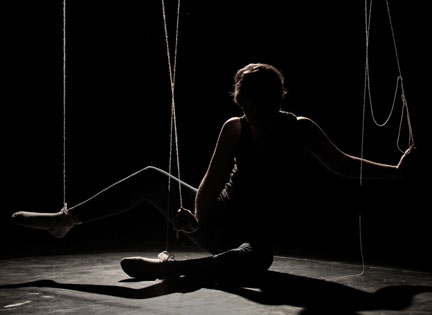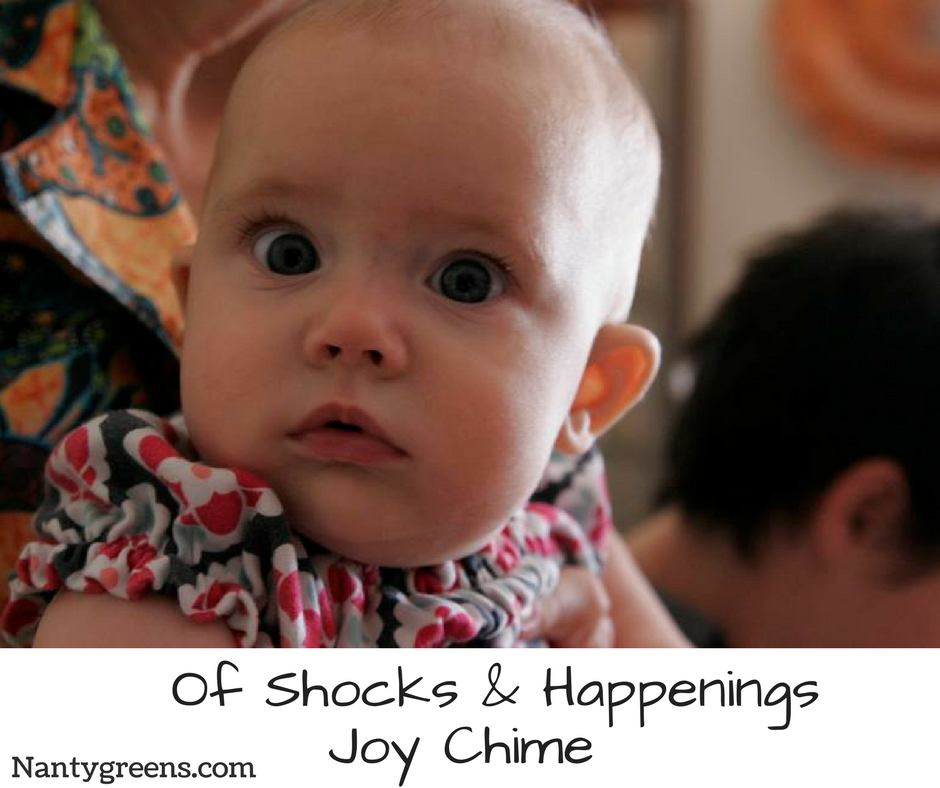“No one can say they loved their daughter more”, Oyibinga muttered to herself as she hurried into the market that morning. Not a man, not a woman. Achieni her daughter was lying on the mat in their hut, in the far reaches of the village, where she left her. Achieni would not move until she returned. She could not. If she got hungry, she would eat garri and dried fish from the two-plastic bowls near her head. There was water in an aluminium cup for when she was thirsty. She would wee on herself when her bladder was full and if she needed to go, she would shit on herself. Yet Oyibinga left her for the market.
Achieni was sick. Achieni was dying. Doctor had said so.
Doctor also said that he would need 10,000 naira to commence treatment. Yams sold at 250 naira for a good tuber. A good tuber had rough brown skin, pure white meat inside and weighed about 1 kg. If she sold roughly 40 good tubers, starved herself and somehow found food for Achieni, she would have 10,000 naira for Achieni to begin her treatment.
Oyibinga could have easily done this in a good year. But this year, she did not have good tubers in the basket heaped on her head. They did not weigh 1 kg or more. Her yams were slight, some were spongy inside, some were rotting outright, they were not pure white inside and even the best ones had a poor taste. They were the uncherished survivors of the floods which ruined the soils in which they grew.
Before Achieni became sick, Oyibinga’s mind was consumed by another problem. The herdsmen. They raped women in their farms. Their cattle ravaged the farmland. They fought with the men, shot some with their long semi-automatic guns. Four men she knew had died at their hands. And so the men of the village formed the vigilante group. The fight back was to begin.
“Our able men will protect us from them. Those devils will no longer rape us. They can do what they want with their animals but no harm shall befall us anymore. Yes, we all know they fuck their cattle,” the village women group leader, Oganya had said at the meeting where the levy was discussed.
The vigilante men had to be well fed so they would be strong enough to fight one on one. They had to be armed with guns for they would be fighting against herdsmen with semi-automatic guns which were said to have come from Libya after its collapse. Some rumoured that the rampaging herdsmen themselves were foreign. The locally made guns came at some cost, even if they were no match for the guns the herdsmen wielded.
And so the levy was placed at 1,500 naira each month until further notice.
She had carried Achieni on her back the first time she took her to Doctor. Doctor was pouring libation on the ground when she arrived, so at first she only saw his back. She saw him raise his hand to the white ceiling and nod his head repeatedly as though satisfied with an outcome. Doctor’s assistant was not in when she got there. She did not knock either.
Doctor turned his head. “Good morning Doctor,” she greeted squeamishly.
“Good morning.” Doctor turned away from the table with the paraphernalia for his morning rituals which consisted of a jar, several palm fronds, white chalk and several colourful beads. Doctor’s face did not look upset. “It is ok. I have just finished.”
Oyibinga nodded perfunctorily. “Doctor, it’s my daughter, Achieni. She eats very little and barely moves.”
“You carried her here?”
“Yes, Doctor.”
Doctor moved towards Achieni, knelt and felt her neck with the back of his hand. He peered into her half closed eyes. Oyibinga could hear Achieni’s rapid breathing. She bit her lip. Achieni was her everything. “Doctor what is wrong with her?”
“She is diabetic.”
“Dia what?”
“Diabetic. Too much sugar in her body. And jaundice too. See, yellow eyes.”
She had thought Achieni’s eyes had the colour of death when she woke her. “You can cure?”
“Yes, I can start right away.”
Oyibinga almost began to smile. “I will need a deposit of 10,000 naira to start,” Doctor said, and Oyibinga’s smile wilted away before it could fully come to life.
“10,000?”
“To start with. But you have to hurry. She does not look good at all.”
“Can I leave her here?”
Doctor patted her shoulder and smiled pleasantly. “No, gather the money together and come back. But hurry, time is not on her side.”
Doctor used to work at the main hospital. The women of the village trusted him. He offered both western and traditional medicine and his patients were grouped accordingly. Oyibinga first went to him when she had pile. He had given her a bitter concoction which she drank for several weeks until the pile disappeared. And so she began to swear by Doctor. The women she sent to him sang his praise. She had told them to tell Doctor it was she who recommended him. Perhaps they had been too worried over their ailment to do so. Why else would Doctor insist on 10,000 naira as if she was a stranger? But still, it was better than trying at the faraway main hospital where they would quote something she could not dream to cope with.
She had carried Achieni on her palms when she was born, the size of a small dehusked coconut, premature. She knew then looking at her tiny eyelids, nose and mouth that she would love her. That something good had come from the evil that went into her. Her resolve did not go unrewarded. Achieni loved her back. Oyibinga could tell very early that she did not inherit the evil of her father, the young man who had raped her. Achieni had taken after her, even if she did not look like her at all. It did not matter to Oyibinga if this meant she must look like him. She had not seen her rapist’s face at all. Achieni’s face could not then remind her of him.
“Gudu morning,” the market women greeted as Oyibinga approached the open air market.
“Gudu morning,” she muttered back. She would not engage in small talk that morning. She would not care whose husband was caught pants down with another village prostitute. She did not care which women shamed themselves fighting over another useless husband. She did not care who had gotten dysentery or even the itch. She used to care about the itch very much, so as to tell Achieni which male persons she must avoid. Achieni would return home and say she had avoided so and so persons. “You have done well my daughter,” Oyibinga would say. Achieni would never ask why she had to avoid these men. That was how unfailingly obedient her daughter was.
But she did not care for all these things and many more that morning. She must sell, sell, sell. Sell as if her life depended on it.
And it did. For Achieni was her life. If Achieni was dying then so too was she.
She spread out the yams on the cardboard paper, placing the better looking ones in front. She would need to sell at least 3,000 naira worth. Added to 7,000 naira hidden in a knot in her wrapper, she would have Doctor’s deposit.
Her first customer was a regular, an elderly man who stooped as he walked. He alone cared for his invalid wife.
“No good yams this year.”
“The flood sir. It affected everywhere,” she lamented, sincerely. “But my yams are some of the better ones.” She did not know this as a fact. The most she knew was that they could not be much worse. The water from the floods had not settled on her small piece of land. It had moved downwards where the produce on the land into which it seeped would have all perished.
“The last yam I bought from you was rotten in the middle.”
“Sorry, sir. These ones should be better sir.”
“Hmmmn. Maybe I should stop buying yams this year. I have looked around and nowhere does the yam look good. But it is all my wife would hear of eating.”
“Let me give you this one sir.” Oyibinga pointed to a big yam in front. “It is the best yam here. I can cut it open for you, if you like.” She waved her knife about, smiling pleasantly.
The old man bought and left. He did not in fact want the yam cut. Oyibinga had placed it in his sack bag and thanked her stars as he slowly walked into the distance.
From the corner of her eyes she could see Oganya. Like her, she sold yams. But her yams were even worse than hers. She would be jealous, Oyibinga knew. The same way she had been jealous that it was Achieni and not her daughter who had caught the interest of Uro, the successful township business apprentice. Uro will own his shop in a year’s time and in the year after that he would return again to marry Achieni. He had even heard all the gossip Oganya spread about Achieni’s birth but had assured her that he did not care. He too was born of suspect circumstances, he said.
And so, Oganya gradually became her arch enemy.
“You have done well with yams this year,” her neighbour, Akaru who sold tomatoes said after her fourth customer left.
Oyibinga smiled and looked up to the sky. “It is my god. He is looking out for me.”
“Eh, but others have not done so well even though their yams are not far worse and they too have god. Are you using magic, Mama Achieni?”
Akaru was smiling, so Oyibinga knew not to take her seriously. But she did not like her tone. She could smell a hint of jealousy and nosiness which was unlike Akaru.
They had done well as neighbours for a long time because they stayed out of each other’s business except when they recommended each other to customers. Oyibinga had once run several yards to find Akaru where she had gone to relief herself in the bush just so she would not miss her special customer. Akaru, she expected, would do the same for her. But that morning Akaru was asking her strange things. Asking how much she was selling her yams for, how much she had sold that day and the days before. Akaru marvelled at how quickly she was selling her yams, comparing her pace to everyone else in the market.
“You know Oganya has not even sold one. Not a single piece of yam. But I have looked at her yams. All of them are visibly rotten. Who would buy such foul yams? You have good yams Mama Achieni. Better thank your god that you have good yams in this poor year. If not eh, hmmm…”
Another customer came for Oyibinga, a woman with two little children who were fascinated by her dreadlocks. One jumped and tugged at it. It hurt Oyibinga but she did not wince. She would bear any pain in silence, so long as her yams sold. So long as Achieni was cured.
It was just before dusk when her last customer came. She had only four yams left. The evening light was poor but Oyibinga did not deceive her. “The yams are not so good Madam.”
“But where are they? Yam is bad this year, no? You will reduce price.”
“I will sell for 150.” They were her most rotten yams. “In fact, I can give you two for 250 only madam.”
The customer smiled. “Good.”
She wrapped the yams in old newspapers, in a fashion more delicate than perhaps the wretched yams were worth. She knew the customer had waited till late to get a bargain, to get more to feed her children whose eyes looked terrorized by day long hunger.
She thought of Achieni. She wondered if she had managed to eat anything. She hoped the fish had not made her nauseous or caused her to vomit everything in her stomach. If she had pooed on herself, she would clean her up with a smile on her face when she returned. It would be like when she was a baby. She would make sure Achieni knew it was nothing to be ashamed of. That she, her mother, would happily do anything for her. That she did everything for her.
She had two yams left. By her rough count she had made over 3,000 naira. She would wait till she got back to the hut before counting it as it was bad luck to count your earnings in the market where prying eyes could see and place a spell on your good fortune.
It was market close. The other women had begun closing their stalls, gathering their wares, and food items and placing them in baskets and cardboard boxes. Those that had stools and tables heaped it on their heads or on their children’s heads. Nothing was left behind anymore. Gone were the days when the women would rely on the wrath of the gods to secure furniture left behind at the market. The gods did not seem to care anymore. Perhaps they were still annoyed that some of the women had chosen to follow the white man’s God. Well let the white man’s God look after their things then, Oyibinga imagined the gods concluded bitterly. Let him visit their oppressors and the thieves amongst them with impotence and leprosy as they would do.
She placed the two unsold yams in her basket and stooped to fold the cardboard paper. When she rose, she was surrounded by the women, their faces stern and stiff.
“We have come for the levy, Mama Achieni,” Oganya announced in a mocking tone.
“We know you have done well in the market. Our eyes and ears tell us so, yet you have refused to pay your fair due. You must be better than all of us women put together.”
“Wait. You don’t understand. My daughter, Achieni…”
“Our eyes and ears, tell us. How fares Mama Achieni at the market this week?” Oganya interrupted her with great authority which stopped Oyibinga in her tracks.
“Eh, she has sold and sold. At good prices too. She has tucked it all away in her wrapper,” Akaru said.
“See. I have said it before. Mama Achieni is a wicked woman,” Oganya said. “Her god has blessed her with good fortune yet she has refused to pay her levy for the protection of us all. Is that not a wicked woman?”
“It is,” the women chorused.
“Shall we allow it?”
“We shall not.”
“What shall we do?”
“We will take what we are owed,” a few chanted.
“It is decided. You shall pay what you owe tonight. Or we shall strip you and take it by force. The choice is yours Mama Achieni.” Oganya said, her tone betraying her delight.
Oyibinga’s head spun. Her hands were shaking. “You don’t understand,” she pleaded. “Achieni my daughter is not well.”
“And so are all the women and girls who have been raped. Did we not all agree that no personal circumstance will stop this levy?”
“We did.”
“Pay what you owe Mama Achieni,” Akaru implored. Her tone did not suggest she took joy from Oyibinga’s plight. But Oyibinga knew then that their friendship had been false all along. She cast a glance at Akaru, who lowered her head and averted her eyes.
“Pay what you owe. Pay what you owe,” the other women sang.
There was a small opening between the circle of women. She counted about twenty women in total. Some were old and haggard. A few were able bodied. Perhaps she could outrun them. But if they caught her? She took her chance, darting to her left, lurching towards the hole she had seen. Too late. The hole had disappeared. She felt a hand grab her blouse from the back and in the next moment she was heaped on the ground. Her left buttock landed on a stone that had bordered the edge of the cardboard paper. She winced as she looked up at the women who closed in on her. They beat her on the head, slapped her face. They pulled her dreadlocks hard. And then yanked her up. Oganya ripped away her wrapper forcefully. She undid the knot and waved the folded notes inside it in the air.
Oyibinga began to cry.
“What a wicked woman,” Oganya shouted. “We shall take what you owe and what you must pay for the next two months. And then we shall take the enforcement fee. You must pay for us women who have left our children hungry for your wretched sake.”
Oganya counted aloud. She took 4,700 naira, tossed the rest of the notes at Oyibinga and pushed her to the ground.
“Shame on you. Shame on you,” the women chorused as they filed away.
Oyibinga placed her head on the red soil and wept. She had failed Achieni.
The market was deserted when she rose – to her new shame. She was finished. Oganya would insist upon the women ostracizing her. Her stall in a prime location would be taken away from her. Her faceless enemies would be free to spread stories about her to customers.
If only, she thought. If only Achieni had not taken ill. Things were going so well. An assured suitor was waiting in the wings. Township life was secured for her. All that was gone in a flash. But of course she did not blame Achieni for falling ill.
She hurried on the path to their hut. The soles of her feet ached. She had forgotten her slippers at the stall in her dash home and so her feet sank, painfully, into the pebbles on the path. She thought about begging Doctor in the morning. She still had at least half of the money. But she knew even this would be no use. Doctor liked his money too much.
And then she began to blame the herdsmen. There were of evil ilk. A godless, cattle fucking evil ilk. They were the cause of her problems. She prayed they would get stuck to their cows one day. Yes, as if by magun juju, let them be stuck forever.
She approached the soundless hut with great trepidation. Her harvested farmland to the side was clear, with new weeds now growing. This gave her a chilling sense of being in a small wilderness, with only her hut and her sick daughter in it. Inside the hut was dark. She could not hear any sounds from Achieni. Perhaps she had managed to eat and had fallen back asleep. She lit a candle with a match by the entrance. She could see Achieni lying on the ground. She had not touched the garri or the fish but she had drunk some water. She had not pooed on herself either. She appeared to be asleep or at least her eyes were closed. She lay beside her. She could not hear her breathing.
She stood, went to the basket and took the knife out. She lay beside her again, placing the knife by her head, knowing what she would do when morning came. If Achieni woke, she would clean her and then clean herself. She would put some powder on and make herself desirable. She was not so old that no man would desire and pay for her. If Achieni did not wake, she would take the knife, look for a vein, slice her wrist open and follow her wherever she had gone. Tomorrow, she would not lose Achieni.










Great read. Twists and turns from start to finish. 👌🏽
Glad you enjoyed it.